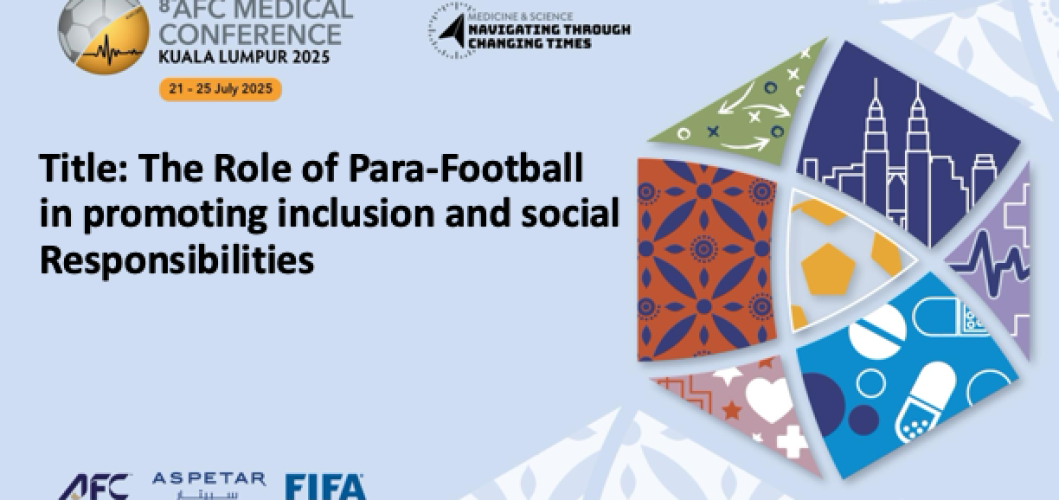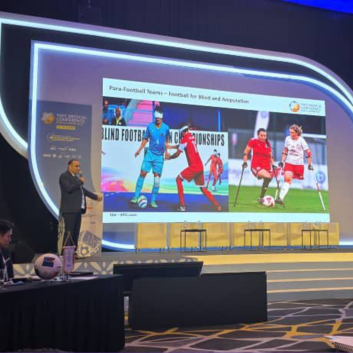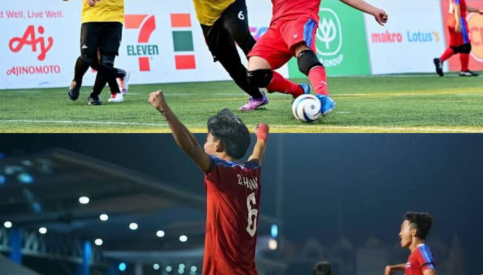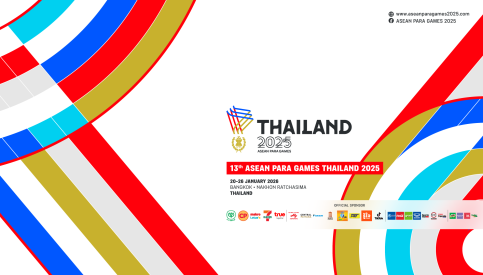AFC Medical Conference highlights dynamic social power of Para Football
AFC Medical Conference highlights dynamic social power of Para Football
KUALA LUMPUR, July 25, 2025 — At the 8th AFC Medical Conference, Dr Bachir Abdul Khalek—Professor at the Lebanese University and Board Member of the Lebanese Paralympic Committee—delivered a powerful presentation titled “The Role of Para Football in Promoting Inclusion and Social Responsibility.” His session presented a compelling case for Para Football being more than a sport but a dynamic force in physical rehabilitation, mental well-being, and social inclusion.
Drawing from his extensive experience across Asia and North Africa, Dr Khalek showcased five ways in which Para Football delivers a pathway to empowerment, identity, and equality.
- Building accessible pathways: He highlighted how Para Football provides a structured platform for people with physical impairments to participate in competitive sport, which in turn challenges social stigma and opens doors for community integration.
- Cultivating empathy and awareness among practitioners: Dr l Khalek called on medical professionals, therapists, and sports staff to adopt a broader mindset—one that goes beyond treatment of injury to actively promote inclusion through Para Football initiatives.
- Community‑based social responsibility: Presenting anecdotal case studies from Lebanon, he showed how Para Football clubs (often run by volunteers, NGOs, or universities) serve as community hubs that foster leadership, peer support, and inclusive role modeling in local areas.
- Policy and medical infrastructure: He encouraged national associations and health ministries to integrate Para Football into broader sports and rehabilitation policies, urging proactive medical support, equipment accessibility, and tailored physiotherapy programmes.
- Collaborative models: Emphasising synergy between medical institutions, football associations, and civil society, Dr Khalek proposed cross‑sector partnerships for advancing research, education, and awareness around Para Football.
Dr Khalek’s presentation aligned with the conference’s theme: “Medicine & Science: Navigating Through Changing Times,” reminding attendees that the future of sports medicine must prioritise equity, inclusion, and social responsibility.
His message resonated strongly amid technical discussions on injury prevention, AI diagnostics, and emergency care. Among 54 lectures delivered, his contribution stood out for its focus on the human and societal impact of football.
What are the implications for Para Football and beyond?
Dr Khalek's presentation marks a pivotal moment: a call for a more inclusive sports medicine culture, one where Para Football isn’t just a field of play, but a driver of social responsibility and equitable community engagement. For those in Para Football it signposted three things:
- Medical professionals, sporting institutions, and Para Football stakeholders are encouraged to bridge the gap between clinical care and inclusive sport participation.
- Para Football federations stand to gain by collaborating with universities and medical experts—leveraging research, community outreach, and evidence‑based policy to grow the sport.
- Fans and advocates can spotlight the role of Para Football in shaping more equitable, empathetic communities—and support programmes that give athletes with disabilities access, visibility, and opportunity.






